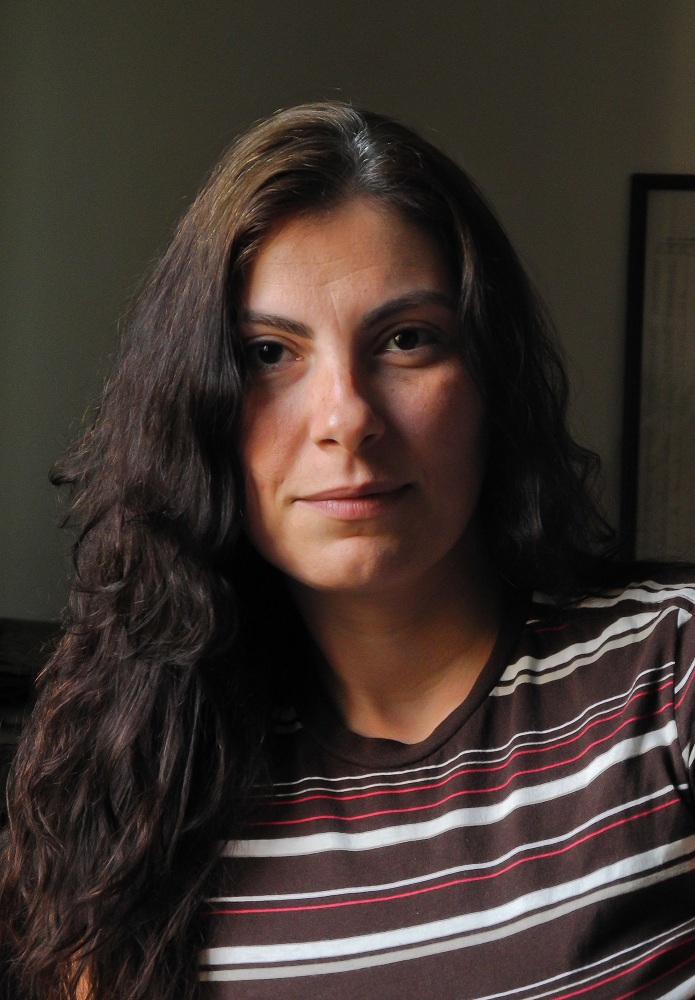By Rania Al Malky
CAIRO: Before I embark on this editorial, I’d like to express my profound gratitude to Egypt’s venerable Military Prosecutor for giving the “No to Military Trials” campaign its biggest public boost yet earlier this week.
It’s hard to think of any other activist more capable of galvanizing masses of pro-democracy advocates both inside and outside Egypt, than Alaa Abdel Fattah, who was detained for 15 days pending investigations because, as a civilian, he refused to be interrogated by a military prosecutor, drawing attention to an injustice faced by some 12,000 Egyptians since the army took power.
The trumped-up charges he faces were another reason why Abdel Fattah rejected the military prosecutor: he is being questioned in relation to the bloody Oct. 9 Maspero massacre, and may face charges of “inciting violence” against the military, ironically during clashes where 27 peaceful protesters were either shot by “unknown civilians” or crushed to death by armored personnel carriers.
Abdel Fattah also categorically rejected the lopsided notion of having the military prosecution investigate a criminal case in which the military is party to the crimes committed. It’s not rocket science: the military prosecutor is not a neutral party in this case and hence cannot be the only body allowed to probe it.
The very idea of painting Abdel Fattah as some kind of public enemy is absurd, not only because of his genetic pedigree as a member of one of the most respected activist families in Egypt (his father is Ahmed Seif Al Islam, the founder of the Hisham Mubarak Law Center which provides legal aid to victims of human rights abuses; his mother is Leila Soueif, a university professor and one of the founders of the March 9 movement which advocates academic freedom and university independence) but also because of his own contribution to the reawakening of Egyptian youth through his online activity, virtual discussion forums and street activism.
Clearly the target of this investigation is not to seek the truth about the identity of the ubiquitous “unknown civilians” intent on driving a wedge between the people and the army, but to perpetuate the smear campaign against the youth who spearheaded Egypt’s non-violent uprising, a campaign that began months ago when one of SCAF’s communiqués singled out the April 6 Youth Movement, accusing it of pursuing a foreign agenda and accepting foreign funding. It’s no surprise that, according to lawyers, a member of April 6 too will be summoned in relation to the Maspero violence.
Speaking of the “unknown civilians” with “invisible hands”, it’s both shocking and telling how press reviews, radio and TV coverage of the National Council on Human Rights’ Maspero fact-finding committee report completely buried the lead.
While the coverage mainly focused on the fact that it was not the military police but provocateurs on motorcycles who infiltrated the protest and shot and killed seven protesters, there was rarely any mention of the most crucial finding confirming that 12 of the victims were crushed to death by APCs which randomly drove through the crowd that fateful day.
While the “unknown civilians” may never be pinned down, the independent investigation has established, presumably beyond a doubt considering that we all saw the footage, that the APCs definitely killed 12 people. The question is how far will the so-called “neutral” military prosecutor bear this “detail” in mind? Can the military accuse itself of killing peaceful protesters, or will we be faced with tall stories of how knife-wielding protesters attacked the army forces and how some of the “unknown civilians” took over the APCs and killed the protesters just to frame the army?
The point is, unless the investigation is conducted by a truly impartial, independent, civilian body with nothing at stake but to reveal the truth, as the NCHR report recommended in another “detail” that most press and media coverage ignored, the truth of what happened on Oct. 9 will be buried with the 27 innocent lives who were killed that day.
Like thousands of others, Alaa Abdel Fattah too is innocent of the charges he may soon be facing before an illegitimate military tribunal. But while he could have easily acquiesced, accepted the situation, answered the questions and simply walked out to spend the Eid holidays with his family and his first child, whose birth he will probably miss, simply for speaking truth to power, Abdel Fattah chose to take the road less taken. The fact that others, like Bahaa Saber, who did exactly what he did were released without so much as a reprimand, while Abdel Fattah’s appeal was turned down on Thursday, reinforces suspicions that there is more to what the military prosecution intends for Abdel Fattah than meets the eye.
Tragically, we have come full circle, as Abdel Fattah concludes in an opinion piece he wrote behind bars published Wednesday by Al Shorouk newspaper, titled “A Return to Mubarak’s Prisons”: “I did not expect that the very same experience would be repeated five years on, after a revolution in which we ousted the tyrant, I go back to jail?…I spent the first two days only listening to stories of torture at the hands of police that is not only adamant on resisting reform, but is seeking revenge for being defeated by the downtrodden, the guilty and the innocent.”
But there is a silver lining.
If there’s one thing we’ve learnt from the January 25 uprising, it’s that ideas cannot be jailed or intimidated, that the quest for justice is so deeply rooted within the human psyche that no matter how long it takes, how arduous the struggle, or how grand the sacrifice, come what may, the free spirit will ultimately prevail, even in the face of APCs and military courts.
Rania Al Malky is the Chief Editor of Daily News Egypt.


